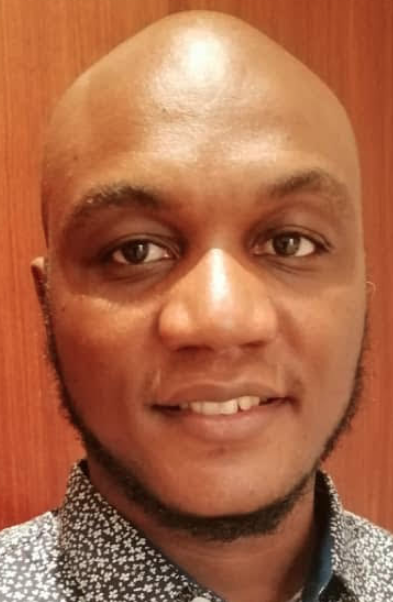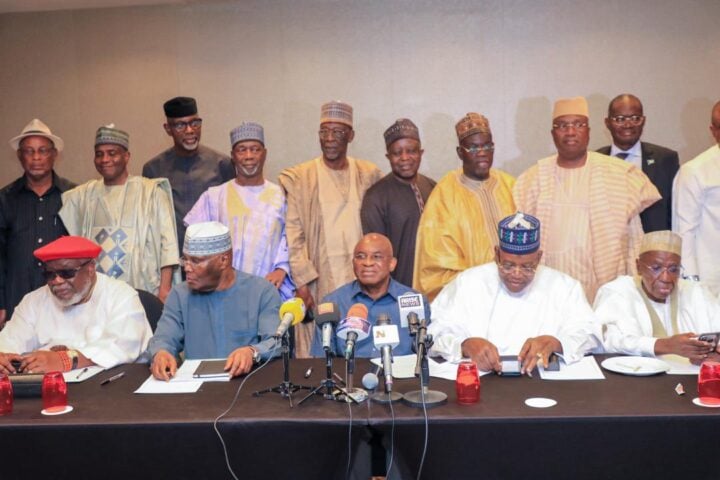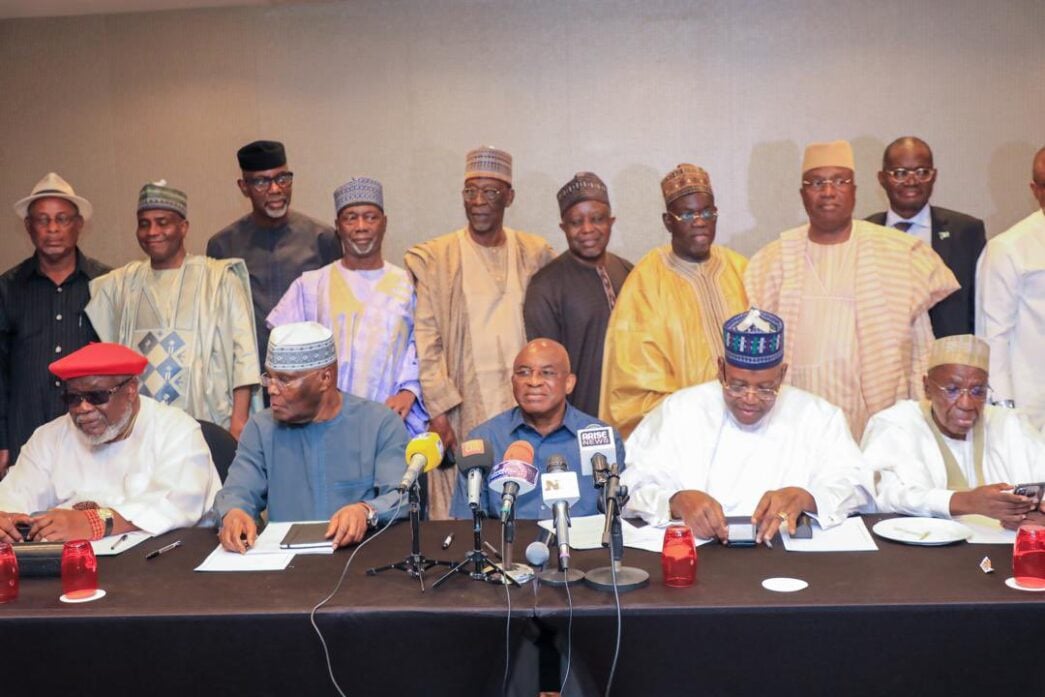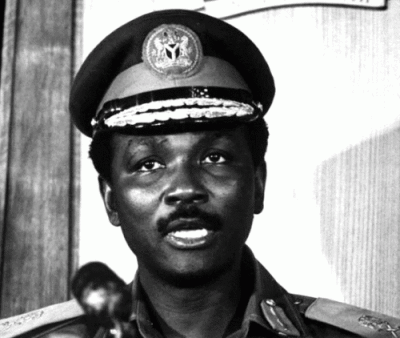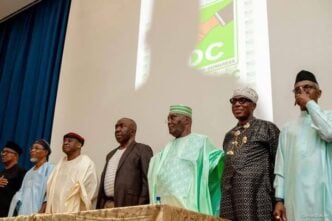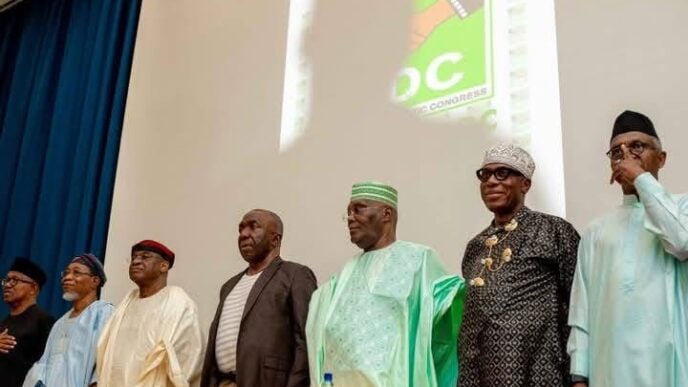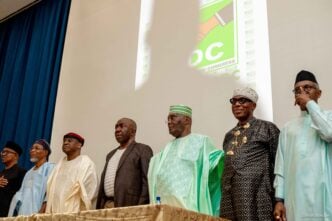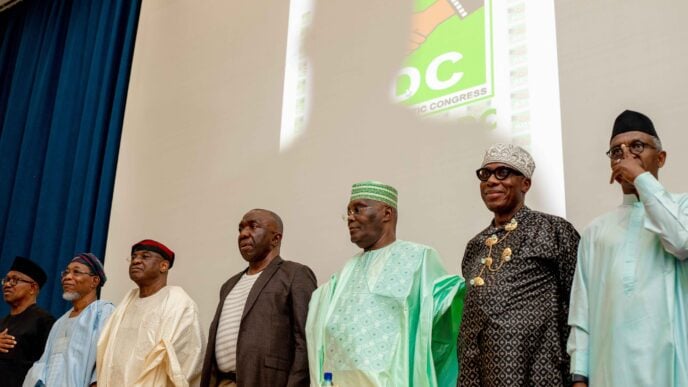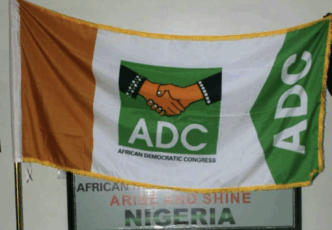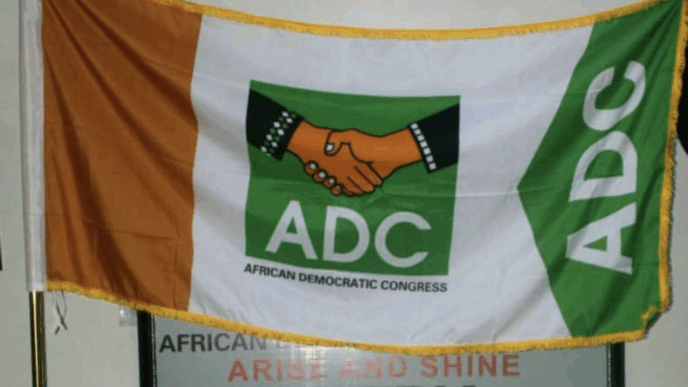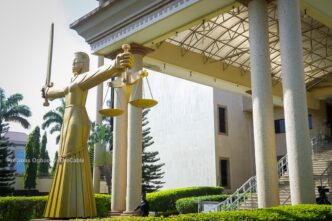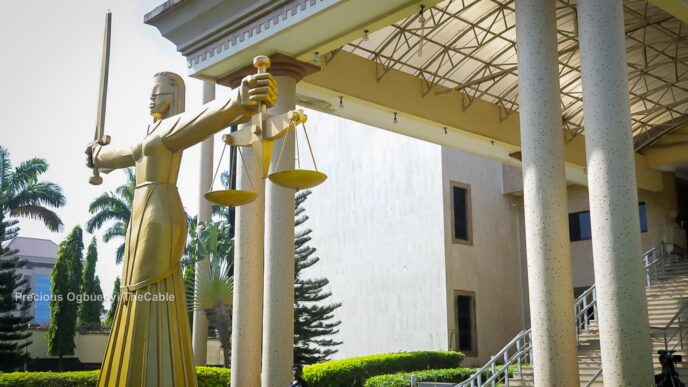The most trending topic in the political space in the last 10 days is the resignation of the All Progressives Congress chairman, Abdullahi Ganduje, and the adoption of the African Democratic Congress (ADC) by the opposition coalition.
When I first heard of the resignation of Ganduje, I thought it was fake news because we are in the era of fake news. You have to double-check to confirm that the news is real. Immediately, I saw it I knew the 2027 chess game had begun.
My thoughts on this? I think we’re witnessing the same old politicians playing musical chairs again, and frankly, I’m not impressed.
Let’s start with Ganduje’s resignation. The man cited health reasons, but come on, does anyone really believe that? If health was truly the issue, why didn’t he resign when he was allegedly stuffing dollars in his agbada? Trust our politicians to always find creative excuses when the real reason is pure political calculation.
Advertisement
Some are saying his resignation is to pave the way for the return of Musa Rabiu Kwankwaso, the strong man of Kano politics. If that’s the case, then this is just another episode of the same political recycling we’ve been witnessing for decades. These are the same faces we’ve been seeing since the return of democracy in 1999, and they want us to believe they have fresh ideas?
Now, to the opposition coalition finding its home in ADC. After all the rumours about the Social Democratic Party or other platforms, they finally settled on ADC. The interim national chairman, Senator David Mark, says they’re on a “rescue mission to rebuild the country and return power to the people.”
Really? Return power to the people? These are the same people who had power at various times, and did what exactly with it?
Advertisement
Look at the cast of characters at that ADC unveiling: Atiku Abubakar, Peter Obi, Rotimi Amaechi, Nasir El-Rufai, Gabriel Suswam, John Oyegun, Uche Secondus, Emeka Ihedioha. Impressive lineup, right? But here’s my question: what’s new about this arrangement?
Atiku has been contesting for president forever. Peter Obi just finished a presidential campaign. Amaechi was a two-term governor and minister. El-Rufai governed Kaduna for eight years. These are not fresh faces bringing new ideas; these are recycled politicians looking for another opportunity to grab power.
The truth is, this coalition looks more like a congregation of political refugees than a serious alternative to the APC. Most of these people left their former parties not because of ideological differences, but because they couldn’t get what they wanted. When politicians can’t get nominations or key positions in their parties, they suddenly discover that those parties are “anti-democratic” or “corrupt.”
Do I think this opposition coalition has enough firepower to remove Tinubu in 2027? The honest answer is maybe, but not for the reasons they think.
Advertisement
Politics is a game of numbers, and right now, Tinubu’s APC is vulnerable. The economic hardship, insecurity, and general dissatisfaction with governance have created an opening for the opposition. However, the question is whether this coalition can provide a credible alternative.
The challenge with this ADC coalition is that it’s built on what they’re against rather than what they’re for. They’re united in their opposition to Tinubu, but what exactly are they offering Nigerians? What’s their blueprint for solving the economic crisis? How do they plan to tackle insecurity? What’s their strategy for creating jobs for the millions of unemployed youth?
I’m also concerned about the sustainability of this coalition. These are strong political personalities with big egos. How long before they start fighting over who gets what? Remember the Third Force of 2019? What happened to it? These politicians have a history of coming together when it’s convenient and scattering when personal interests clash.
Furthermore, the ADC platform raises questions about capacity. While the party now has big names, does it have the grassroots structure to compete with the APC and PDP? Politics is not just about having former governors and ministers; it’s about having a party structure that can mobilise voters across the 774 local government areas.
Advertisement
The coalition also needs to address the credibility question. Many of these politicians were part of the problems they now claim to want to solve. El-Rufai was in the APC when the party was allegedly destroying the country. Amaechi was the minister of transportation under Muhammadu Buhari. Atiku was Vice-President under Olusegun Obasanjo. What exactly did they do differently then?
However, I must admit that the opposition coalition has one thing going for it: timing. By 2027, Nigerians might be so frustrated with the current administration that they’ll be willing to try anything. The economic reforms of the Tinubu administration, while necessary, are causing serious hardship, and patience is wearing thin.
Advertisement
The coalition also has the advantage of bringing together politicians from different regions and parties. If they can maintain unity and present a compelling alternative vision, they might just have a chance.
But here’s what I think will ultimately determine their success: Can they move beyond being just an anti-Tinubu coalition to becoming a pro-Nigeria movement? Can they articulate a clear vision for the country that goes beyond criticism of the current administration?
Advertisement
My advice to this coalition is simple: Stop telling us what’s wrong with Nigeria; we already know. Start telling us what you’ll do differently. Give us a manifesto, not just press releases. Show us your blueprint for economic recovery, not just your list of grievances..
Advertisement
Views expressed by contributors are strictly personal and not of TheCable.
